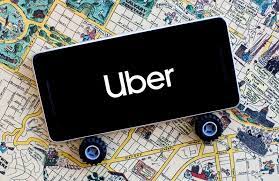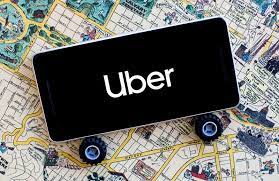
Uber has created a "private-label" version of its delivery technology to assist the United Nations in delivering food and water supplies to Ukraine's war-torn territories. The technology firm is collaborating with the United Nations World Food Programme (WFP).
Large delivery trucks find it impossible to access some areas of Ukraine due to structural damage and the possibility of attack. The WFP can coordinate a fleet of smaller vehicles using Uber's technology.
The World Food Programme selects its own drivers and vehicles, but some are former Uber drivers who worked in Ukraine before to the Russian invasion.
Dara Khosrowshahi, CEO of Uber, stated that his company provided the WFP with "their own private-label Uber."
It's a customised version of the Uber Direct delivery platform, which is commercially available - notable customers include Apple and Tesco. Businesses typically pay Uber a commission every delivery, but the WFP is not being charged.
Within a 100-kilometer radius of its warehouses, it may utilise the software to coordinate distribution and track deliveries and drivers.
The concept is being tested in Dnipro, Ukraine's capital. It is hoped that it would be expanded subsequently to four other cities: Lviv, Vinnytsia, Kyiv, and Chernivtsi.
The Red Cross, the International Rescue Committee, and Save the Children are among the organisations trying to offer emergency supplies to those in need.
Within a few weeks of its initial interaction with the World Food Programme, Uber's platform was up and operating.
"It's not like you can wait a month to get food to people - people have got to get food immediately," said WFP executive director David Beasley.
"You can't go a few weeks without food, and so using Uber's technology, their distribution systems, their dispatch systems… it really is a great success story."
Uber has had a difficult few years. Its ride-sharing service suffered greatly as people stayed at home during the pandemic, and the company has been compelled to modify its driver policy, providing them more workers' rights.
Khosrowshahi claims that when he initially became CEO in 2017, Uber's delivery arm was in its infancy, but it is now positioned to become the firm's largest service.
In 2021, restaurant food accounted up 96 percent of Uber's delivery orders. It was also the first year when the 13-year-old company turned a profit.
"I ultimately think that delivery can be bigger in scope because it's not just about food. It's groceries - and also empowering any local merchant to try to out-Amazon Amazon," said Khosrowshahi.
"If Amazon can deliver next day, your local merchant can deliver in the next hour or two hours… people want delivery of everything at home as quickly as possible, and we can ride that wave."
(Source:www.flipboard.com)
Large delivery trucks find it impossible to access some areas of Ukraine due to structural damage and the possibility of attack. The WFP can coordinate a fleet of smaller vehicles using Uber's technology.
The World Food Programme selects its own drivers and vehicles, but some are former Uber drivers who worked in Ukraine before to the Russian invasion.
Dara Khosrowshahi, CEO of Uber, stated that his company provided the WFP with "their own private-label Uber."
It's a customised version of the Uber Direct delivery platform, which is commercially available - notable customers include Apple and Tesco. Businesses typically pay Uber a commission every delivery, but the WFP is not being charged.
Within a 100-kilometer radius of its warehouses, it may utilise the software to coordinate distribution and track deliveries and drivers.
The concept is being tested in Dnipro, Ukraine's capital. It is hoped that it would be expanded subsequently to four other cities: Lviv, Vinnytsia, Kyiv, and Chernivtsi.
The Red Cross, the International Rescue Committee, and Save the Children are among the organisations trying to offer emergency supplies to those in need.
Within a few weeks of its initial interaction with the World Food Programme, Uber's platform was up and operating.
"It's not like you can wait a month to get food to people - people have got to get food immediately," said WFP executive director David Beasley.
"You can't go a few weeks without food, and so using Uber's technology, their distribution systems, their dispatch systems… it really is a great success story."
Uber has had a difficult few years. Its ride-sharing service suffered greatly as people stayed at home during the pandemic, and the company has been compelled to modify its driver policy, providing them more workers' rights.
Khosrowshahi claims that when he initially became CEO in 2017, Uber's delivery arm was in its infancy, but it is now positioned to become the firm's largest service.
In 2021, restaurant food accounted up 96 percent of Uber's delivery orders. It was also the first year when the 13-year-old company turned a profit.
"I ultimately think that delivery can be bigger in scope because it's not just about food. It's groceries - and also empowering any local merchant to try to out-Amazon Amazon," said Khosrowshahi.
"If Amazon can deliver next day, your local merchant can deliver in the next hour or two hours… people want delivery of everything at home as quickly as possible, and we can ride that wave."
(Source:www.flipboard.com)














